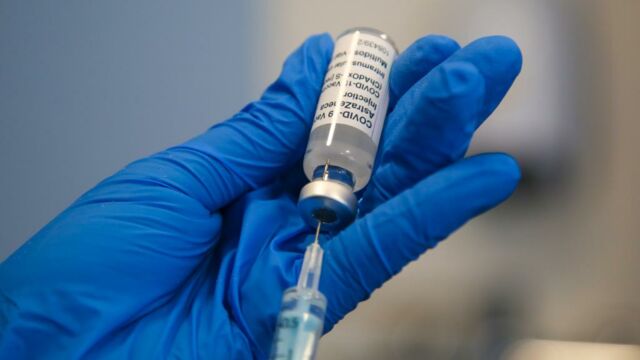AstraZeneca vaccine linked to an increase in mild blood disorder

A study in Scotland has linked the AstraZeneca vaccine to a slight increase in idiopathic thrombocytopenic purpura (ITP), a treatable blood disorder.
Data from Scotland’s vaccination programme has revealed a small potential link between idiopathic thrombocytopenic purpura (ITP) and the Oxford/AstraZeneca vaccine.
Discover our latest podcast
The link was found after Public Health Scotland examined the medical records of 4.5 million Scotland residents, looking for blood clots, any unusual bleeding or instanced of ITP. This highly treatable condition involves the reduction of blood platelets, leading to bleeding complications.
More under this adMore under this adStudy shows a small increase in ITP risk for AstraZeneca vaccine receivers
The analysis found that ITP risk increased slightly in the 1.7 million people who had received their first dose of the AstraZeneca vaccine. This was compared to a group that didn’t receive the vaccine up to the 14th of April. Researchers estimated an additional 11 cases of the blood disorder for every million doses given of the AstraZeneca vaccine. But, the side effect was primarily observed in those with pre-existing health conditions.
The increase in ITP cases with the AstraZeneca vaccine is not a unique occurrence, and similar side effects are also observed in flu jabs, MMR and hepatitis B vaccines. In fact, there is a higher chance of developing ITP by catching coronavirus. Stephen Evans, a professor of pharmacoepidemiology at the London School of Hygiene & Tropical Medicine, revealed that ITP occurred in 340 per 100,000 people infected with COVID:
More under this adMore under this adEven if the Oxford/AstraZeneca vaccine does have an increased risk of ITP, its benefit outweighs its risk. For the majority of people, ITP does not cause serious problems, but it is not the case for everyone.
The study also showed no increased risk of ITP associated with the Pfizer vaccine up to the 14th of April.
Aziz Sheikh, a senior author on the study and professor of primary care research and development at the University of Edinburgh, commented that overall the results were ‘pretty reassuring.’
More under this adMore under this adAt the population level, we are seeing low risks from the vaccine, and there are treatments for people who develop ITP.
Sheikh then urged anyone who experiences symptoms of ITP such as bruising or bleeding after receiving the AstraZeneca jab to let their GP know as the condition is highly treatable.
More under this adMore under this adWhat is ITP?
ITP, otherwise known as idiopathic thrombocytopenic purpura, is a disorder that occurs when the immune system destroys the body’s blood platelets. These are the cells that help the blood to clot. The condition can occur after bacterial or viral infections and is even a rare complication of some vaccines.
Luckily, there are treatments available for ITP, including medications that increase your blood platelet count.
Symptoms of the ITP include:
- Excessive bruising or easily bruised skin
- Superficial bleeding in the skin that appears as pin-sized red or purple dots
- Bleeding from the gums or nose
- Blood in urine or stool
- Unusually heavy menstrual flow
If you experience any symptoms of ITP either after testing positive for coronavirus or receiving the AstraZeneca vaccine, make sure to book an appointment with your doctor.
More under this ad